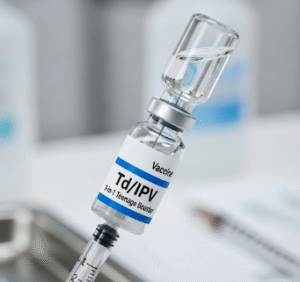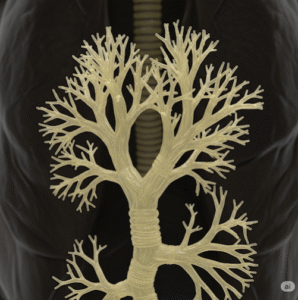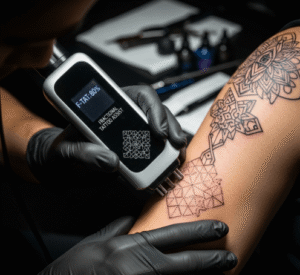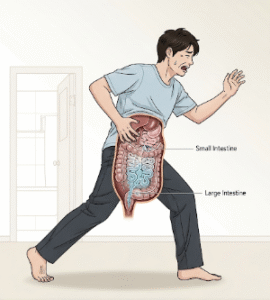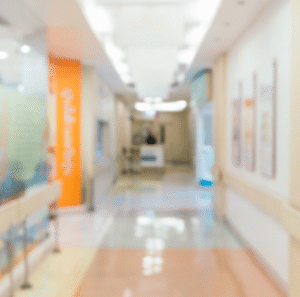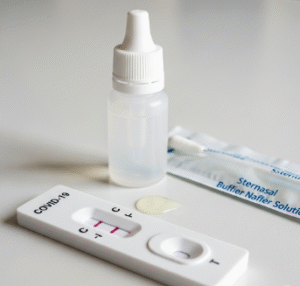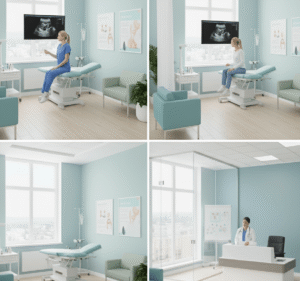Overview
Meniere’s disease is a chronic disorder of the inner ear that affects both balance and hearing. It is characterized by recurring episodes of vertigo (spinning sensation), hearing loss, tinnitus (ringing in the ears), and a feeling of fullness in the ear. The exact cause remains unknown, but it is thought to be related to abnormal fluid buildup in the inner ear (endolymphatic hydrops).
In Korea, the prevalence of Meniere’s disease is rising due to lifestyle factors such as high salt consumption, stress, and aging populations. Korean hospitals provide advanced diagnostic tools, including audiometry, vestibular testing, and MRI scans, along with modern treatment options such as intratympanic steroid injections, endolymphatic sac surgery, and vestibular rehabilitation therapy. Patients benefit from multidisciplinary care involving ENT specialists, neurologists, and rehabilitation experts.
What is Meniere’s Disease?
Meniere’s disease is a progressive inner ear condition that primarily affects one ear but may involve both in some cases. It typically develops in adults between 30–60 years old and can significantly impair quality of life if not properly managed.
Symptoms
- Recurrent episodes of vertigo lasting 20 minutes to several hours
- Fluctuating hearing loss, especially in lower frequencies
- Tinnitus (ringing, buzzing, or roaring sound in the ear)
- Aural fullness or pressure in the affected ear
- Imbalance and dizziness
- Progressive, permanent hearing loss in advanced cases
Causes
The exact cause is unknown, but factors include:
- Abnormal accumulation of inner ear fluid (endolymphatic hydrops)
- Autoimmune inner ear disease
- Viral infections
- Genetic predisposition
- Abnormal immune response or allergies
Risk Factors
- Family history of Meniere’s disease
- Middle-aged adults (most common between 40–60 years)
- Stress and anxiety
- High-salt diet (common in Korean food culture)
- Migraines or other neurological conditions
Complications
- Permanent hearing loss
- Frequent, unpredictable vertigo episodes affecting daily activities
- Increased risk of falls and injuries
- Anxiety and depression due to chronic symptoms
Prevention
While Meniere’s disease cannot always be prevented, certain strategies can reduce severity and frequency of attacks:
- Low-salt diet to reduce inner ear fluid pressure
- Limiting caffeine and alcohol
- Stress management techniques (meditation, yoga, exercise)
- Adequate sleep
- Avoiding smoking
Treatment Options in Korea
Diagnosis
- Audiometry (hearing test)
- Vestibular tests (caloric testing, VNG)
- MRI scans to rule out tumors
- Electrocochleography (ECochG) for fluid pressure assessment
Medical Treatments
- Diuretics (to reduce inner ear fluid buildup)
- Betahistine (improves inner ear blood flow)
- Corticosteroids (oral or intratympanic injection)
- Anti-nausea and anti-vertigo medications (e.g., meclizine, diazepam)
Surgical or Advanced Therapies
- Endolymphatic sac decompression or shunt surgery
- Vestibular nerve section (cutting the balance nerve to relieve vertigo while preserving hearing)
- Labyrinthectomy (for severe cases with total hearing loss)
- Intratympanic gentamicin injections (to control vertigo)
Rehabilitation and Support
- Vestibular rehabilitation therapy for balance improvement
- Hearing aids for patients with progressive hearing loss
- Psychological counseling to manage anxiety and stress
- Lifestyle and dietary guidance tailored to Korean food culture


